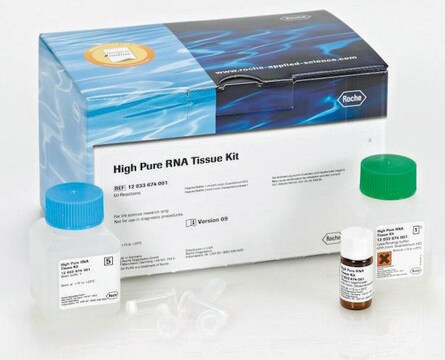MAS006
Pyruvate Quick Test Strips
Sufficient for 10 tests
Synonym(s):
Pyruvic Acid Quick Test Strips
About This Item
Recommended Products
storage condition
(Keep container tightly closed in a dry and well -ventilated place. Keep away from heat and sources of ignition.)
input
serum
urine
plasma
food(s)
beverage(s)
application(s)
food and beverages
detection method
colorimetric
storage temp.
2-8°C
General description
Application
Features and Benefits
Quick Results: Sample treatment and assay can be completed in under 15 minutes, ensuring efficiency.
User-Friendly Design: Convenient test strip design eliminates the requirement for a plate or cuvette reader, simplifying the testing process.
Suitability
Principle
Other Notes
Signal Word
Danger
Hazard Statements
Precautionary Statements
Hazard Classifications
Carc. 2 - Eye Irrit. 2 - Flam. Liq. 2 - STOT SE 3
Target Organs
Central nervous system
Supplementary Hazards
Storage Class Code
3 - Flammable liquids
Flash Point(F)
1.4 °F
Flash Point(C)
-17 °C
Certificates of Analysis (COA)
Search for Certificates of Analysis (COA) by entering the products Lot/Batch Number. Lot and Batch Numbers can be found on a product’s label following the words ‘Lot’ or ‘Batch’.
Already Own This Product?
Find documentation for the products that you have recently purchased in the Document Library.
Our team of scientists has experience in all areas of research including Life Science, Material Science, Chemical Synthesis, Chromatography, Analytical and many others.
Contact Technical Service








